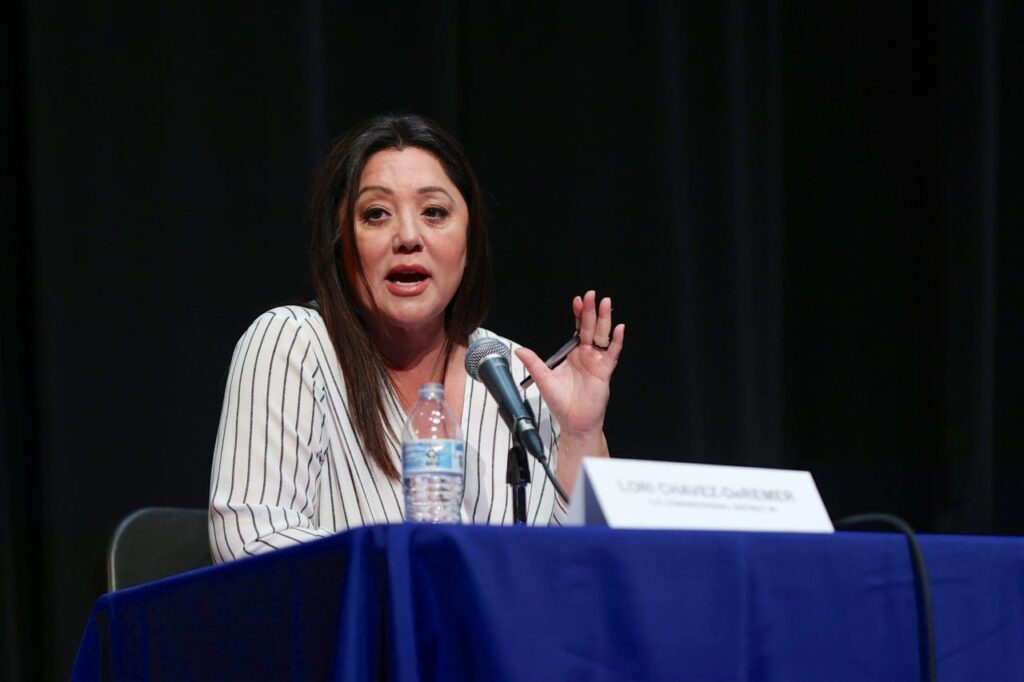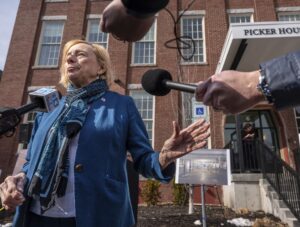Union-Backed Republican Nominated for Labor Department Amidst Anti-Union Cabinet
President-elect Donald Trump has selected Oregon Rep. Lori Chavez-DeRemer, a Republican with union support, to lead the Department of Labor. Her nomination, announced on November 22, stands out in a cabinet where many members have shown opposition to union rights.
Though Chavez-DeRemer started her congressional career in 2023, she lost her reelection bid this year to Democrat Janelle Bynum. During her 2024 campaign, she received endorsements from unions such as the International Brotherhood of Teamsters and the Association of Flight Attendants. Notably, she is one of the few Republicans in the House who backed the PRO Act, legislation designed to bolster workers’ rights to unionize and engage in collective bargaining.
Teamsters president Sean O’Brien, in an op-ed, described Chavez-DeRemer as “the exact type of champion for the American worker that Republicans should get behind if they are serious about becoming the working-class party.”
Despite her support for union initiatives, Chavez-DeRemer will be part of an administration filled with individuals known for their anti-union stances. Vice president-elect J.D. Vance, for instance, has a 0% score from the AFL-CIO, reflecting his lack of pro-worker votes since entering the Senate in 2023.
In collaboration with Florida Sen. Marco Rubio, Trump’s nominee for Secretary of State, Vance co-authored a revised TEAM Act. This bill proposes the establishment of employer-led workplace committees as alternatives to unions, which would require weakening federal collective bargaining protections. Although the bill failed to pass, the Heritage Foundation’s Project 2025, a policy blueprint for a potential second Trump term, suggests reviving the legislation.
Russ Vought, a principal author of Project 2025, is slated to lead the Office of Management and Budget, while Brendan Carr, another contributor, is chosen to chair the Federal Communications Commission.
Former Florida Attorney General Pam Bondi, nominated for the Department of Justice, has promoted right-to-work laws, which critics claim undermine union power and lead to worse working conditions. Bondi also opposed a National Labor Relations Board (NLRB) complaint against Boeing in 2011, which accused the company of relocating to right-to-work states to avoid union influence.
New York Rep. Elise Stefanik and Florida Rep. Michael Waltz, nominated as Ambassador to the United Nations and national security adviser respectively, co-sponsored the National Right-to-Work Act last year, which has not yet proceeded to a full House vote.
Billionaire Elon Musk, an informal adviser to Trump, has also showcased anti-union views. In 2018, he warned Tesla employees about losing stock options if they unionized. SpaceX, Musk’s company, faced an NLRB complaint in July after eight employees claimed they were dismissed for criticizing him. In a recent New York Times event, Musk stated, “I disagree with the idea of unions … I just don’t like anything which creates a lords and peasants sort of thing.”
While Chavez-DeRemer garnered some union backing, it wasn’t comprehensive. Bynum, her Democratic opponent, received endorsements from AFSME, AFL-CIO, SIEU, and the United Auto Workers.
A spokesperson for Trump’s transition team did not provide comments when contacted for this story.





